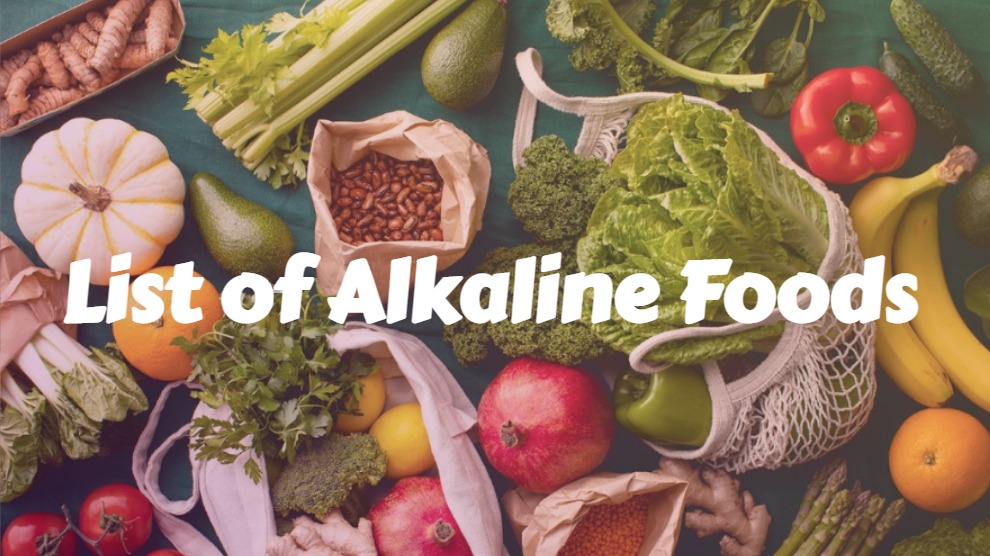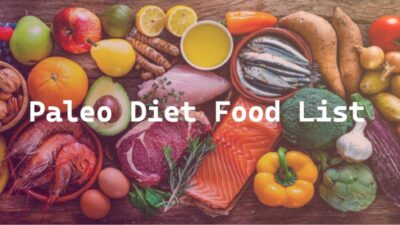
Alkaline Foods List is now available online, check the names of top 25 most commonly used alkaline-forming foods. Alkaline foods are those that have an alkalizing effect on the body when metabolized. They are believed to help maintain the body’s optimal pH level and promote overall health. While the concept of alkaline foods is popular in certain dietary practices, it’s important to note that the body’s pH level is tightly regulated by various physiological mechanisms, and the impact of food on pH balance is minimal.
Common Alkaline Foods
Alkaline foods are often considered beneficial for maintaining optimal health and body’s pH balance. Here is a list of commonly recognized alkaline foods:
- Leafy greens: spinach, kale, collard greens, Swiss chard, lettuce, arugula
- Cruciferous vegetables: broccoli, cauliflower, Brussels sprouts, cabbage
- Citrus Fruits: Lemons, Limes, Grapefruits, oranges
- Berries: strawberries, blueberries, raspberries, blackberries
- Melons: Watermelon, Cantaloupem, honeydew melon
- Seaweeds: Spirulina, kelp, nori
- Root Vegetables: Carrots, Radishes, Sweet potatoes, Beets, Turnips
- Herbal Teas: Chamomile, peppermint, rooibos
- Cucumbers
- Celery
- Avocado
- Bell peppers
- Asparagus
- Green beans
- Zucchini
- Garlic
- Onions
- Ginger
- Green Tea
- Olive Oil
- Coconut Oil
- Almonds
- Quinoa
- Buckwheat
- Alkaline Water (with a pH of 8 or above)
Benefits of Alkaline Foods
Advocates of alkaline diets claim several potential benefits associated with consuming alkaline foods. However, it’s important to note that scientific evidence supporting these specific benefits is limited, and more research is needed to draw definitive conclusions. Here are some potential benefits that proponents of alkaline foods suggest:
- Balancing pH levels: Alkaline foods are believed to help maintain a slightly alkaline pH level in the body, which proponents argue can support overall health. However, the body has its own mechanisms to regulate pH levels, and the impact of dietary pH on the body’s pH balance is considered minimal.
- Antioxidant properties: Many alkaline foods, such as fruits and vegetables, are rich in antioxidants. Antioxidants help combat oxidative stress and reduce the risk of chronic diseases.
- Increased nutrient intake: Alkaline diets often emphasize whole, nutrient-dense foods like fruits, vegetables, and whole grains. Consuming a variety of these foods can help ensure an adequate intake of vitamins, minerals, and fiber, which are essential for overall health.
- Weight management: Some proponents of alkaline diets argue that these foods can help with weight management. It is suggested that alkaline diets, which are typically high in fruits, vegetables, and whole grains, may promote satiety and reduce calorie intake, thus potentially supporting weight loss efforts. However, more research is needed to establish a direct relationship between alkaline foods and weight management.
- Improved digestion: Alkaline foods, particularly fruits and vegetables, are often high in fiber, which can support healthy digestion and regular bowel movements.
It’s important to approach these claims with caution and not rely solely on alkaline foods for health benefits. Maintaining a balanced and varied diet that includes a wide range of nutrient-rich foods is generally recommended for overall health and well-being.










